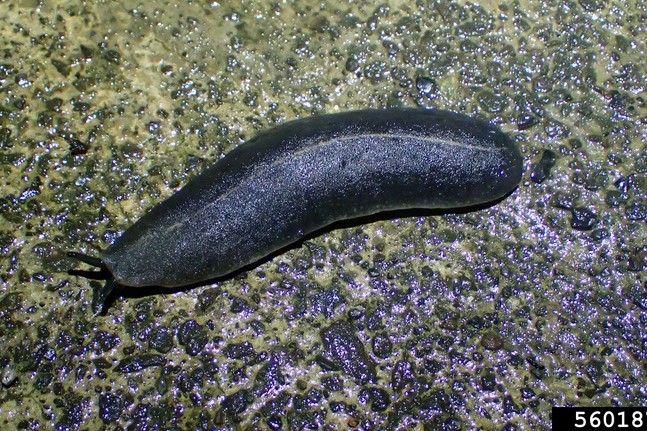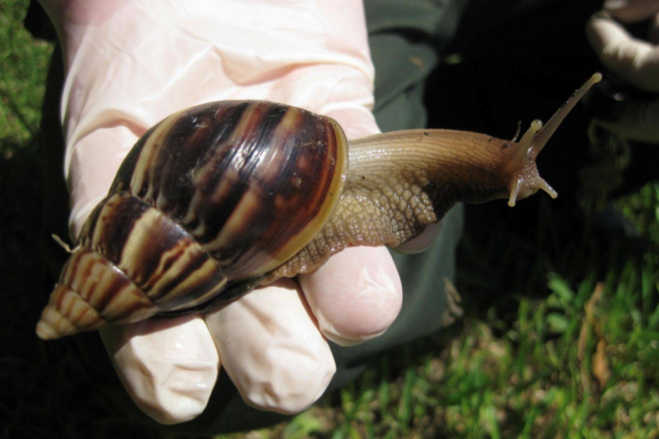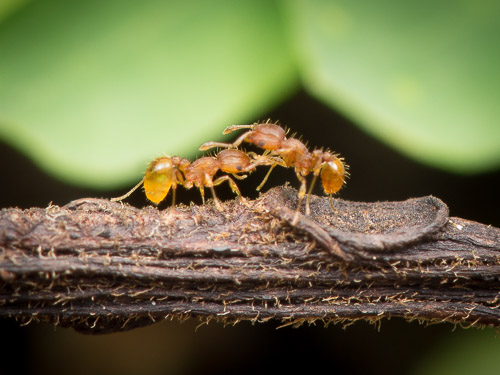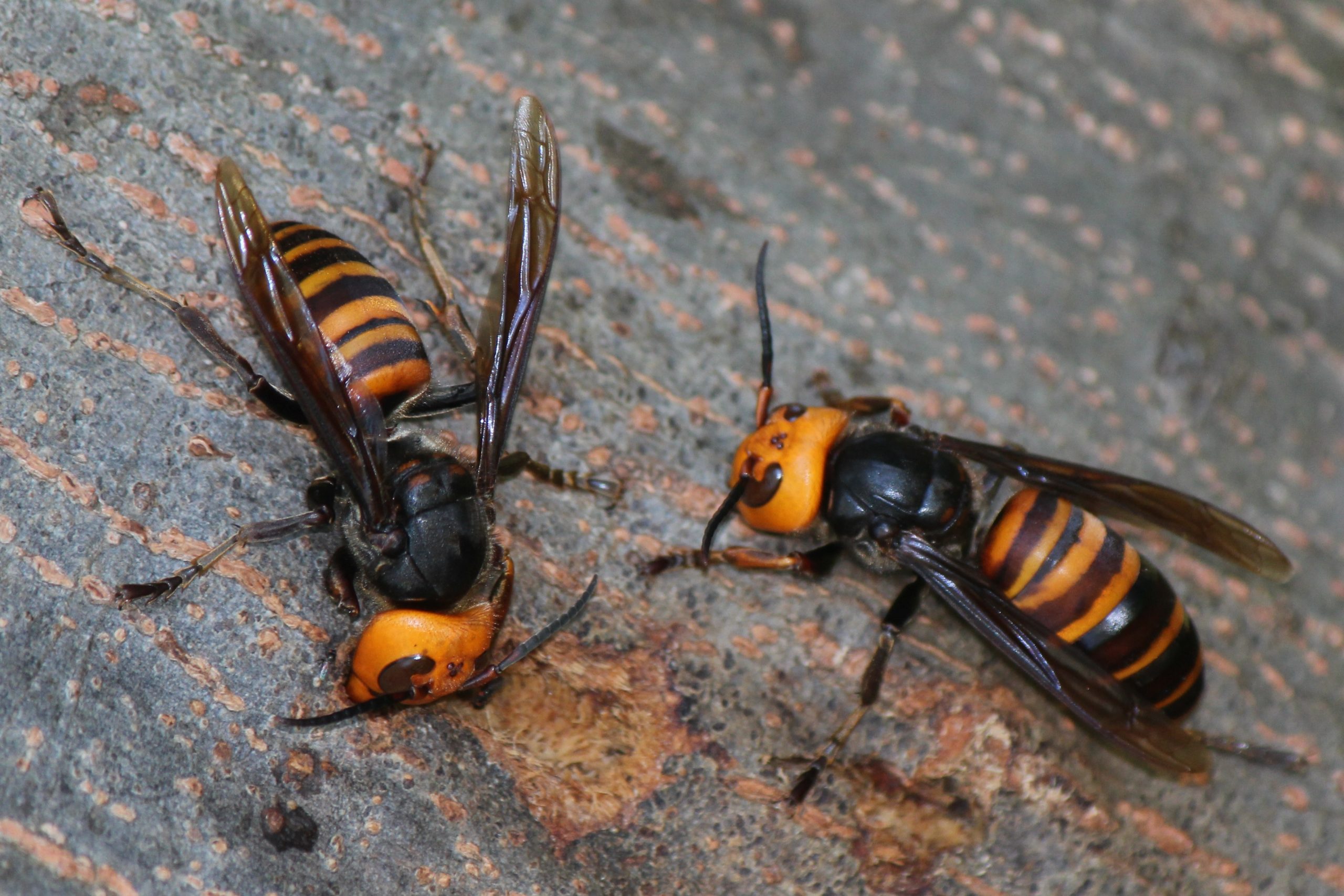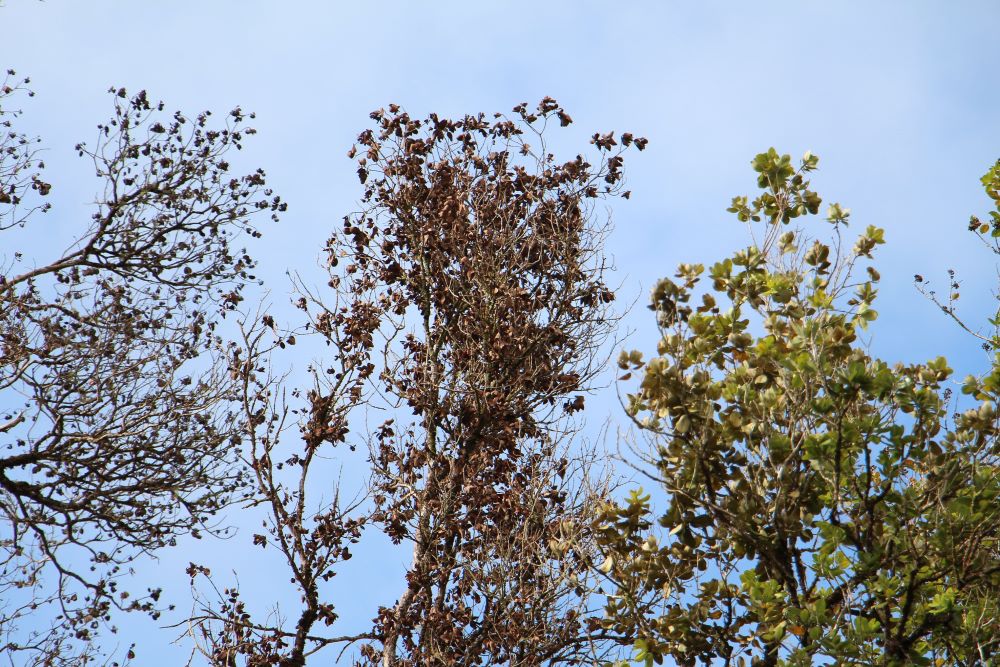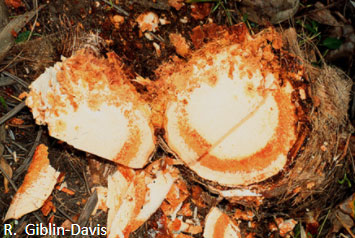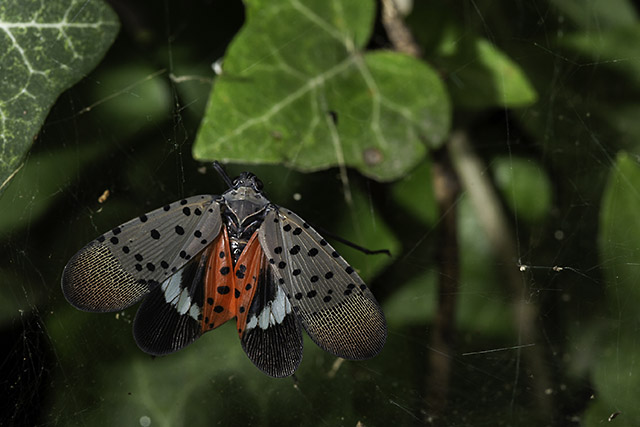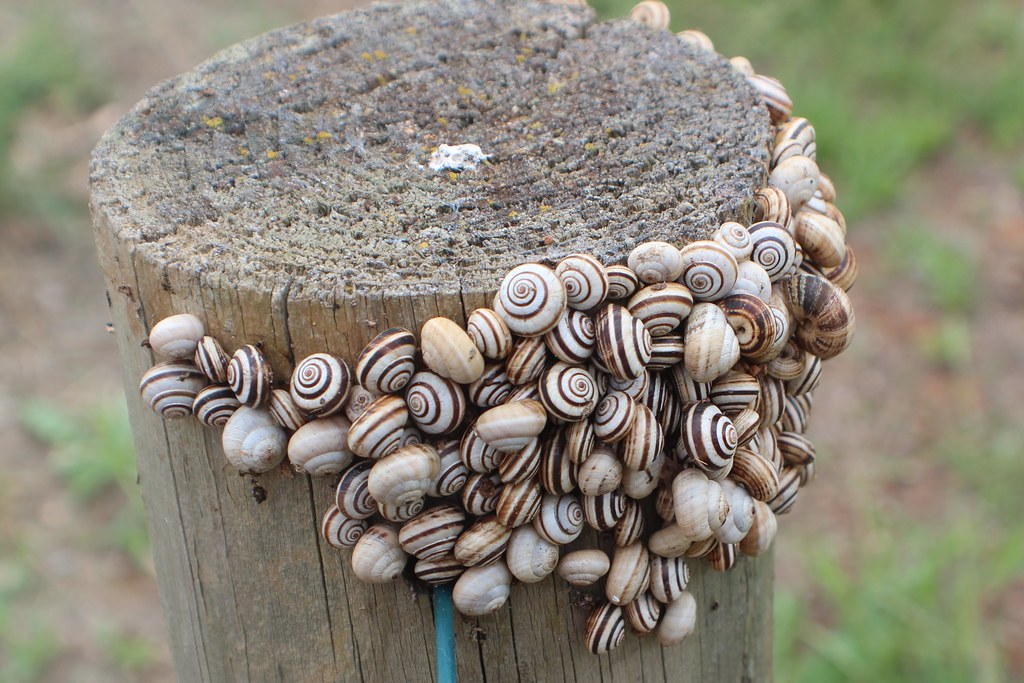Common name: Japanese Beetle
Scientific name: Popillia japonica
Status in Hawaii: Not known to be present in Hawaii
A small metallic-green beetle with a host range of over 300 plants. The soil-borne larvae munch roots of turf crops and skeletonize leaves and flowers.
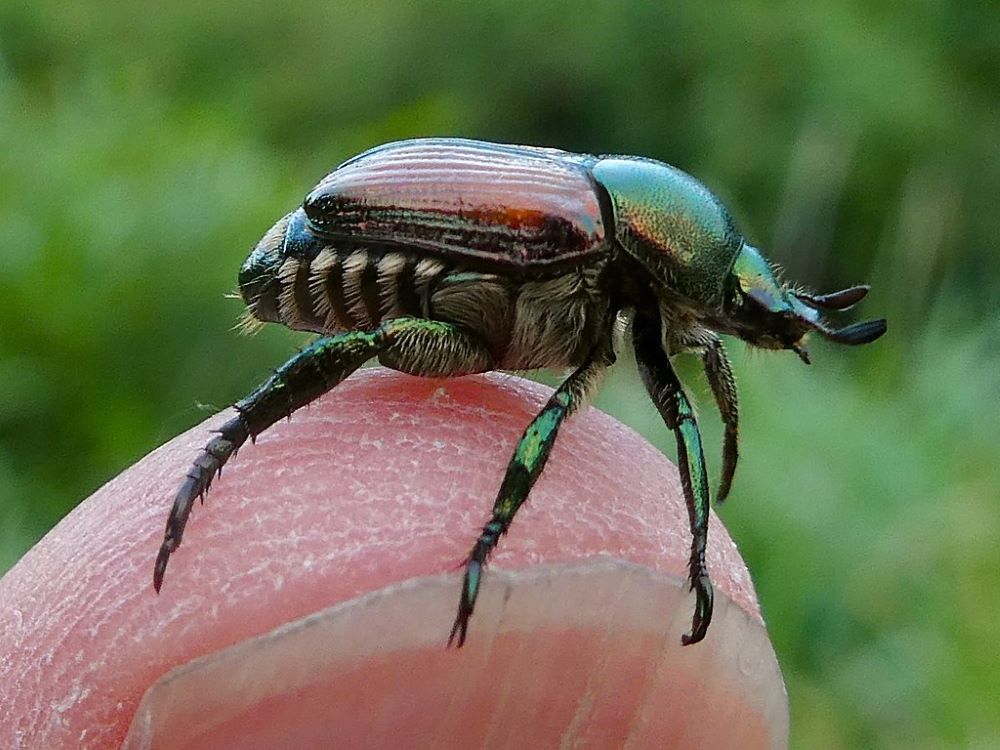

Impacts
- Soil-dwelling larvae feed on plant roots reducing the ability of grass to take up water during times of stress and causing dead patches and destroying turf.
- Adults feed on leaves and flowers, skeletonizing the leaf surface. They are most active on warm sunny days.
- Estimated to be the single most destructive and widespread pest of turf, landscape, and ornamental plants in the eastern US, costing approximately $450 million each year in management alone.
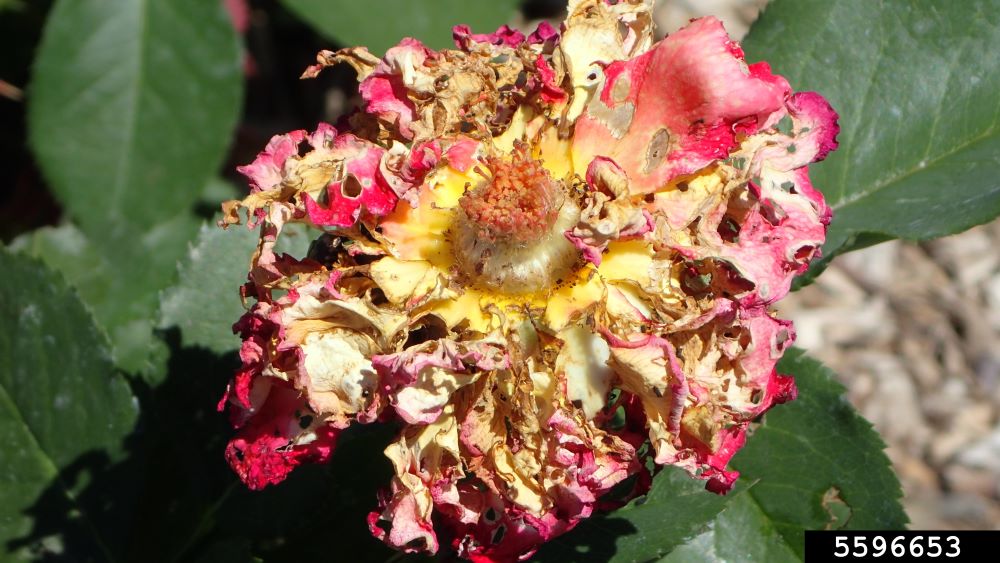

Identification
- Adult is a small, attractive oval-shaped beetle, 8 to 12 mm (1/3- 1/2 inch) long and 6 mm (1/4 inch) wide. They are metallic green with bronze wing covers. Note the 5 patches of white hairs on either side of the abdomen that differentiates this beetle from similar-looking beetles. Look for aggregations of beetles on the leaves and flowers of the most vulnerable plants.
- Eggs are laid deep in the soil and under the turf.
- Indications of pest infestation include leaves that are skeletonized and flower damage.

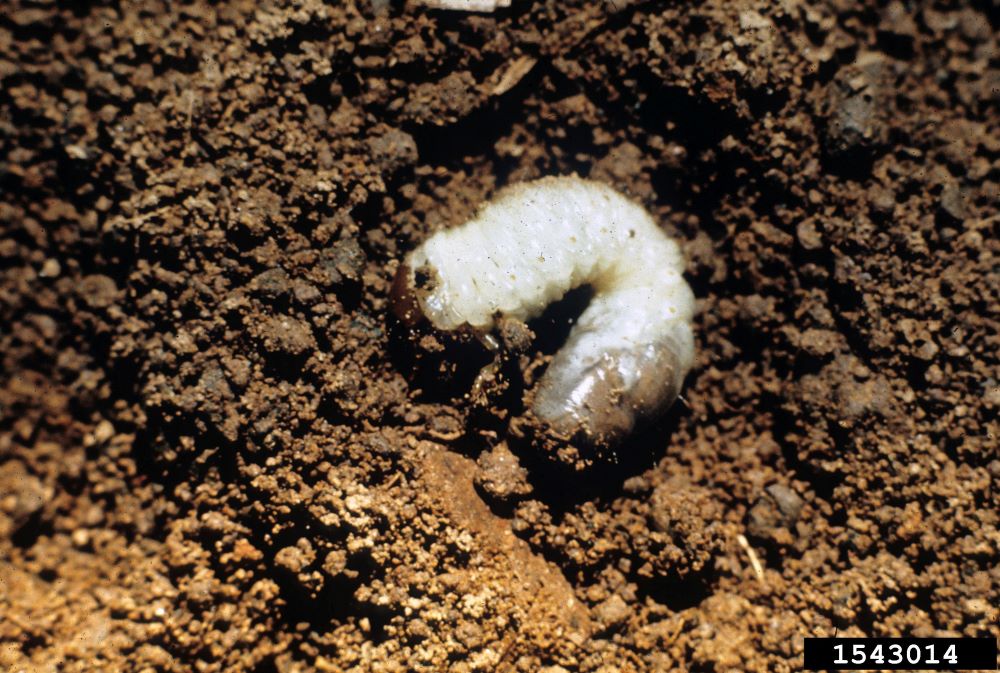
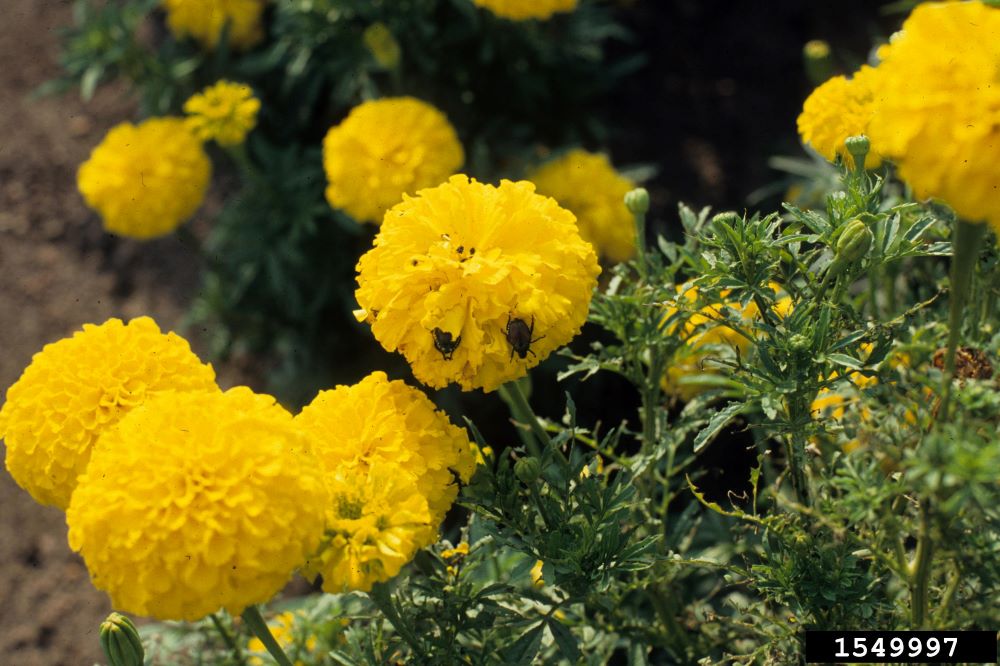
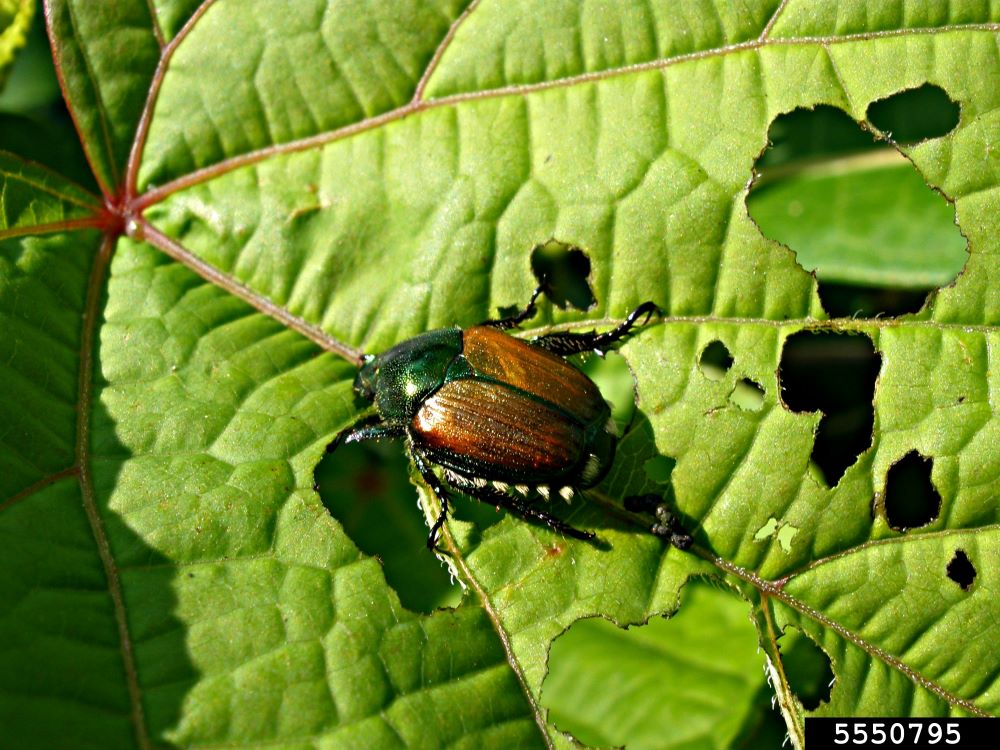

Vectors/Commodities
- Over 300 species of plants are known to be host to Japanese beetles.
- Primary hosts are Acer (maples), Asparagus, Glycine (soybean), Malus (ornamental apple), Rubus (blackberry, raspberry), Tliia (basswood,linden), Vitis (grapes) and Zea (corn).

Distribution
- Native to Japan but spread to China, Russia, Portugal, Canada, and the US.
- In the U.S. it has become established in at least 30 states and is found in all states east of and bordering the Mississippi River with the exception of Florida.
- It has been intercepted repeatedly in quarantine on Oahu.

Best Management Practices
- This species is not found in Hawaii. Prevention and early detection efforts protect Hawaii’s nursery industry and environment.
- Consider sourcing options and pest distribution when purchasing plants.
- BOLO: Be on the lookout! Carefully inspect host plants for Japanese beetles, particularly if leaves are skeletonized or flowers are damaged.
- Report suspected beetles to 643pest.org, or by phone to 643-PEST (7378).
Other Nursery Pests
PEST PREVENTION TRAINING
An advanced education program for those on the front lines protecting Hawaii from invasive species.
Contact your local Invasive Species Committee to schedule a training for your team. Learn more
This material was made possible, in part, by a Cooperative Agreement from the United States Department of Agriculture’s Animal and Plant Health Inspection Service (APHIS). It may not necessarily express APHIS’ views.





